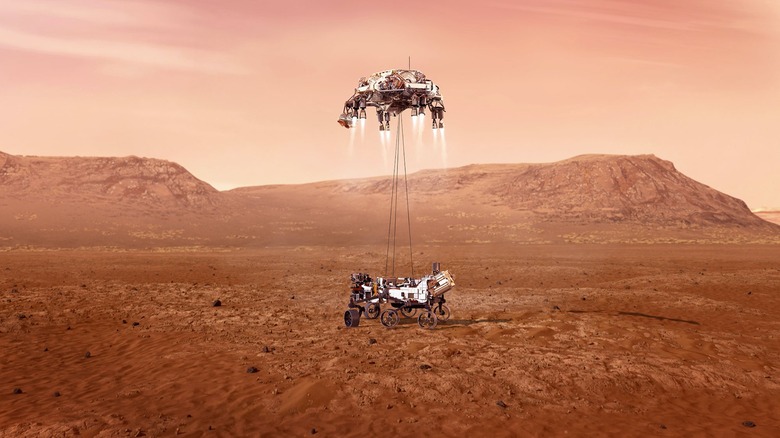White House Planetary Protection Report Puts Space Contamination Under The Microscope
A new National Strategy for Planetary Protection has been released by the White House, detailing some of the challenges that need to be addressed to avoid contamination of Earth from other planets, and vice-versa. The document, handiwork of a team assembled by the National Space Council and Office of Science and Technology Policy, sets out some of the questions to be answered and policies to be created in order to avoid future missions to Mars and further afield from inadvertently resulting in terrestrial contamination.
"As the United States continues to lead in space exploration and commercialization, national policy must keep pace to accelerate our world-class commercial space sector and scientific enterprise, while appropriately avoiding biological contamination," the White House warns. "Many aspects of planetary protection policy have not been updated since the Apollo Era and do not reflect the increasing role and capabilities of the private sector."
There are two main aspects to the new call for cautionary policies. On the one hand, it's looking increasingly likely that we'll bring back samples from planets like Mars in the next few decades. Beginning that process, indeed, is one of the goals of the ongoing Perseverance rover mission, which is outfitted with a number of specially-designed sampling tubes.
If all goes to plan, a future space mission will gather those tubes – filled with Martian dust and rock – and shuttle them back into orbit around the red planet. A third mission will then capture them, and bring them back to Earth for analysis.

That planetary protection against what's being referred to as "backward contamination" will help preserve our local biosphere from what could, the document warns, be "potentially hazardous microbes" from other planets. At the same time, though, it's also important not to commit any acts of "forward contamination," the White House document suggests.
That means avoiding microbes and anything else from Earth being transported to other planets. If not followed carefully, so the warning goes, it could get in the way of confirming "the validity of potential scientific discoveries in the search for extraterrestrial life."
The goal now is a set of standards which the US and its private space partners can commit to, in the name of preventing Earth from contaminating space, and vice-versa.
"Meeting the strategy's objectives will ensure a cohesive national effort that balances scientific discovery, human exploration, and commercial activity in space," the White House says, "while meeting applicable international and domestic obligations."
This week's report has been the handiwork of a wide-ranging group. That includes representation from NASA, the FAA, CDC, and EPA, as well as the various Departments of Agriculture, Defense, State, Transportation, and more. One of the goals is to incorporate feedback from the private sector, to better balance the possibility of tapping space as a new resource while also avoiding negative planetary protection implications.
